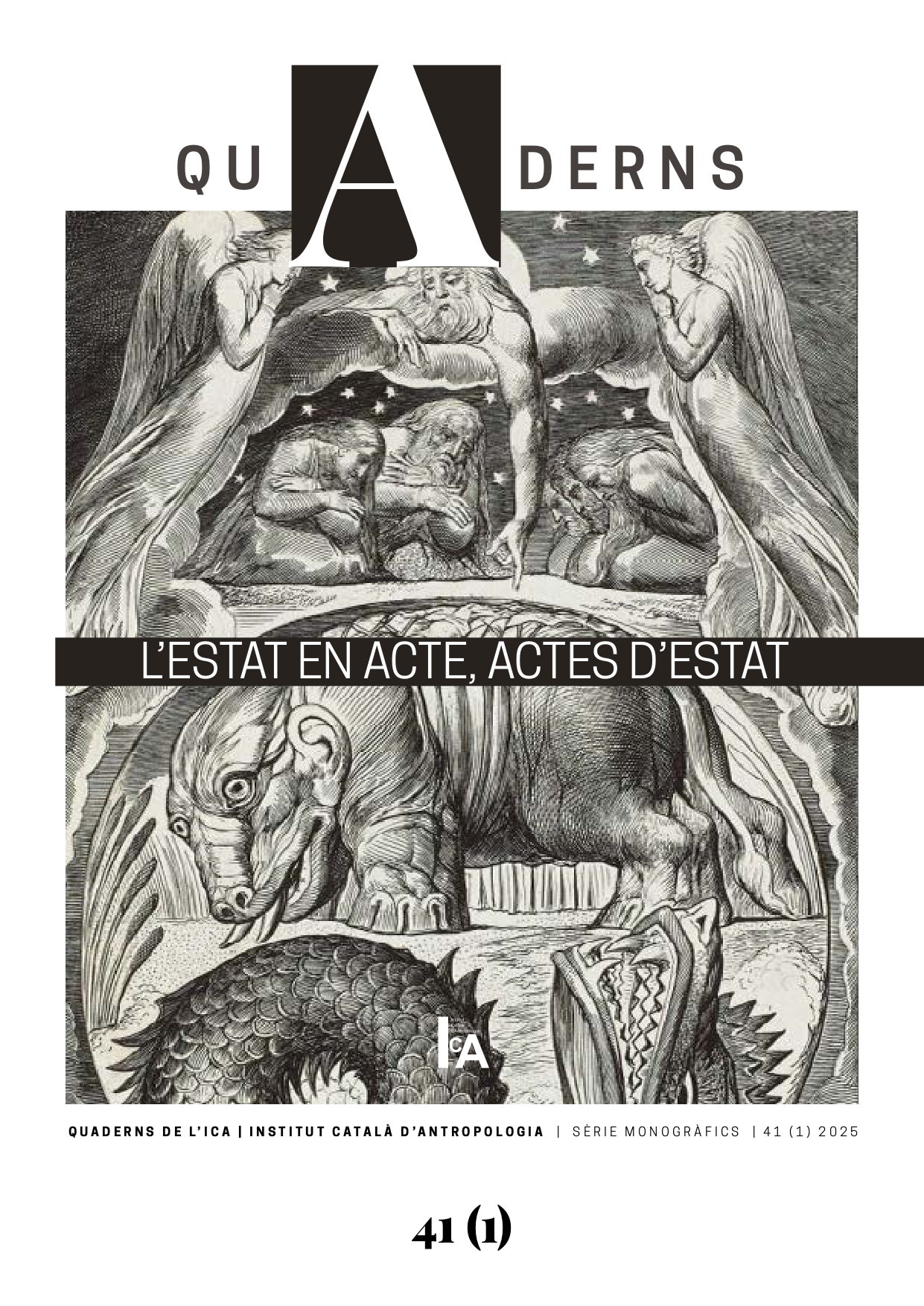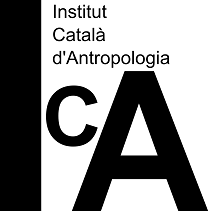The ethnographer and the public action. Elements for a critical use of ethrographic research
DOI:
https://doi.org/10.56247/qua.552Keywords:
Ethnography, public action, public policy, StateAbstract
This chapter examines how ethnographic research can contribute critically to the study of public action. Although ethnography and public policy analysis have traditionally evolved along separate paths, the author argues that their convergence offers a powerful tool for uncovering the practices, processes, and power relations that structure state action. Critical ethnography does not merely describe the effects of policies on affected groups; rather, it challenges official representations, highlights the symbolic and classificatory dimensions of policies, and reveals the forms of domination embedded within administrative mechanisms. Through a combination of analytical distance and reflexive engagement, the author proposes four key axes to define a critical ethnography of public action: critique of positivist approaches, deconstruction of official discourses, the connection between field observations and structures of power, and the analysis of the social and symbolic effects of administrative classification processes. The chapter thus advocates for an ethnography capable of intervening in public debate by offering situated and politicised knowledge of the institutional logics that shape the lives of the popular classes.
Downloads
Global Statistics ℹ️
|
291
Views
|
149
Downloads
|
|
440
Total
|
|
References
Alam, T., Gurruchaga, M., & O’Miel, J. (2012). Science de la science de l’État : la perturbation du chercheur embarqué comme impensé épistémologique. Sociétés contemporaines, (87), 155–173. DOI: https://doi.org/10.3917/soco.087.0155
Balbi, F. A., & Boivin, M. (2008). La perspectiva etnográfica en los estudios sobre política, Estado y gobierno. Cuadernos de Antropología Social, (27), 7–17.
Barrault, L. (2013). Gouverner par accommodements. Stratégies autour de la carte scolaire. Paris: Dalloz.
Becker, H. S. (1967). Whose Side Are We On? Social Problems, 14(3), 239–247. DOI: https://doi.org/10.1525/sp.1967.14.3.03a00010
Becker, H. S., Gans, H. J., Newman, K. S., & Vaughan, D. (2004). On the Value of Ethnography: Sociology and Public Policy, a Dialogue. Annals of the American Academy of Political and Social Science, 595, 264–276. DOI: https://doi.org/10.1177/0002716204266599
Belorgey, N. (2012). De l’hôpital à l’État : le regard ethnographique au chevet de l’action publique. Gouvernement et action publique, (2), 9–40. DOI: https://doi.org/10.3917/gap.122.0009
Belorgey, N. (2010). L’hôpital sous pression. Enquête sur le “nouveau management public”. Paris: La Découverte. DOI: https://doi.org/10.3917/dec.belor.2010.01
Belshaw, C. S. (1976). The Sorcerer’s Apprentice. An Anthropology of Public Policy. New York: Pergamon Press.
Bennett, J. W. (1996). Applied and Action Anthropology: Ideological and Conceptual Aspects. Current Anthropology, 37(S1), S23–S53. DOI: https://doi.org/10.1086/204461
Biehl, J., & Petryna, A. (2013). When People Come First. Critical Studies in Global Health. Princeton: Princeton University Press. DOI: https://doi.org/10.23943/princeton/9780691157382.001.0001
Blau, P. M. (1955). The Dynamics of Bureaucracy. Chicago: University of Chicago Press.
Borofsky, R. (1999). Public Anthropology. Anthropology News, 40(1), 6–7. DOI: https://doi.org/10.1111/an.1999.40.1.6
Bourdieu, P. (2012). Sur l’État. Cours au Collège de France, 1989-1992. Paris: Seuil / Raisons d’agir.
Bourdieu, P. (2001a). Contre-feux (t. II). Paris: Raisons d’agir.
Bourdieu, P. (2001b). Science de la science et réflexivité. Cours du Collège de France, 2000-2001. Paris: Raisons d’agir.
Burawoy, M. (2005). For Public Sociology. American Sociological Review, 70(1), 4–28. DOI: https://doi.org/10.1177/000312240507000102
Chambers, E. (1985). Applied Anthropology. A Practical Guide. Upper Saddle River: Prentice Hall.
Douglas, M. (2008). Comment pensent les institutions. Paris: La Découverte.
Dubois, V. (2018). El burócrata y el pobre. Relación adminitrativa y tratamiento de la miseria. Institució Alfons el Magnànim-Centre Valencià d’Estudis i d’Investigació.
Dubois, V. (2014). The Economic Vulgate of Welfare Reform: Elements for a Socioanthropological Critique. Current Anthropology, 55(Suppl. 9), 138–146. DOI: https://doi.org/10.1086/675904
Dubois, V. (2012). Ethnographier l’action publique. Gouvernement et action publique, (1), 83–101. DOI: https://doi.org/10.3917/gap.121.0083
Dubois, V. (2009). Le paradoxe du contrôleur. Actes de la recherche en sciences sociales, (178), 28–49. DOI: https://doi.org/10.3917/arss.178.0028
Dubois, V. (2003). La sociologie de l’action publique, de la socio-histoire à l’observation des pratiques (et vice-versa). In P. Laborier & D. Trom (Éds.), Historicité de l’action publique (pp.347–364). Paris: PUF.
Edin, K., & Lein, L. (1997). Making Ends Meet. How Single Mothers Survive Welfare and Low-Wage Work. New York: Russell Sage Foundation.
Fassin, D. (2011). La force de l’ordre. Une anthropologie de la police des quartiers. Paris: Seuil.
Feldman, G. (2011). Illuminating the Apparatus: Steps toward a Nonlocal Ethnography of Global Governance. In C. Shore, S. Wright, & D. Però (Éds.), Policy Worlds. Anthropology and the Analysis of Contemporary Power (pp. 32–49). New York - Oxford: Berghahn Books. DOI: https://doi.org/10.1515/9780857451170-003
Fetterman, D. M. (Éd.). (1993). Speaking the Language of Power. Communication, Collaboration, and Advocacy (Translating Ethnography into Action). Londres / Washington: Falmer Press.
Franzé Mudanó, A. (2013). Perspectivas antropológicas y etnográficas de las políticas públicas. Revista de Antropología Social, (22), 9–23.
GAO (United States General Accounting Office). (2003). Federal Programs. Ethnographic Studies Can Inform Agencies’ Actions. Washington. En ligne: https://www.gao.gov/products/gao-03-455
Gayon, V. (2009). Un atelier d’écriture internationale : l’OCDE au travail. Éléments de sociologie de la forme “rapport”. Sociologie du travail, (51), 324–342. DOI: https://doi.org/10.1016/j.soctra.2009.06.005
Goffman, E. (1968). Asiles. Études sur la condition sociale des malades mentaux et autres reclus. Paris: Minuit.
Gupta, A. (2012). Red Tape. Bureaucracy, Structural Violence, and Poverty in India. Durham: Duke University Press. DOI: https://doi.org/10.1215/9780822394709
Guyon, S. (2013). Des “Primitifs” aux “Autochtones”. Savoirs ethnologiques et politiques publiques en Guyane de 1946 à nos jours. Genèses, (91), 49–70. DOI: https://doi.org/10.3917/gen.091.0049
Hacking, I. (2002). Façonner les gens. Cours au Collège de France, 2001–2002. Paris. Résumé en ligne: https://www.college-de-france.fr/fr/agenda/cours/faconner-les-gens
Hays, S. (2002). Flat Broke with Children. Women in the Age of Welfare Reform. Oxford: Oxford University Press.
Katz, J. (2004). On the Rhetoric and Politics of Ethnographic Methodology. The Annals of the American Academy of Political and Social Science, 595, 280–308. DOI: https://doi.org/10.1177/0002716204267475
Kimball, S. (1978). Anthropology as a Policy Science. In W. L. Partridge & E. M. Eddy (Éds.), Applied Anthropology in America (pp. 277–291). New York: Columbia University Press.
L’Estoile, B. (de). (2015). La réunion comme outil et rituel de gouvernement. Conflits interpersonnels et administration de la réforme agraire au Brésil. Genèses, (98), 7–27. DOI: https://doi.org/10.3917/gen.098.0007
L’Estoile, B. (de). (2000). Science de l’homme et “domination rationnelle”. Savoir ethnologique et politique indigène en Afrique coloniale française. Revue de synthèse, (3–4), 291–323. DOI: https://doi.org/10.1007/BF02970492
L’Estoile, B. (de), Neiburg, F., & Sigaud, L. (2000). Savoirs anthropologiques, administration des populations et construction de l’État. Revue de synthèse, (3–4), 233–263. DOI: https://doi.org/10.1007/BF02970490
Lichter, D. T., & Jayakody, R. (2002). Welfare Reform: How Do We Measure Success? Annual Review of Sociology, 28(1), 117–141. DOI: https://doi.org/10.1146/annurev.soc.28.110601.140845
Lipsky, M. (1980). Street-Level Bureaucracy. Dilemmas of the Individual in Public Services. New York: Russell Sage Foundation. DOI: https://doi.org/10.2307/1288305
Maillard, J. (de), Hunold, D., Roché, S., Oberwittler, D., & Zagrodzki, M. (2016). Les lògiques professionnelles et politiques du contrôle: Des styles de police différents en France et en Allemagne. Revue française de science politique, (66), 271–293. DOI: https://doi.org/10.3917/rfsp.662.0271
Malinowski, B. (1929). Practical Anthropology. Africa, 2(1), 22–38. DOI: https://doi.org/10.2307/1155162
Mauss, M., & Durkheim, É. (2017). De quelques formes primitives de classification. Paris: PUF. DOI: https://doi.org/10.3917/puf.durkh.2017.03
Miaz, J. (2019). Le droit et ses médiations. Pratiques d’instruction des demandes d’asile et encadrement institutionnel des décisions. Politique et sociétés, (38), 71–98. DOI: https://doi.org/10.7202/1058291ar
Morgen, S., & Maskovsky, J. (2003). The Anthropology of Welfare “Reform”. Annual Review of Anthropology, 32, 315–338. DOI: https://doi.org/10.1146/annurev.anthro.32.061002.093431
Nader, L. (1972). Up the Anthropologist. Perspectives Gained from Studying Up. In D. H. Hymes (Éd.), Reinventing Anthropology (pp. 284–311). New York: Pantheon Books.
Okongwu, A. F., & Mencher, J. P. (2000). The Anthropology of Public Policy: Shifting Terrains. Annual Review of Anthropology, 29, 107–124. DOI: https://doi.org/10.1146/annurev.anthro.29.1.107
Palier, B., & Surel, Y. (2005). Les “trois I” et l’analyse de l’État en action. Revue française de science politique, (55), 7–32. DOI: https://doi.org/10.3917/rfsp.551.0007
Rhodes, R. A. W. (2011). Everyday Life in British Government. Oxford/New York: Oxford University Press.
Rhodes, R. A. W., Hart, P. ’t, & Noordegraaf, M. (Éds.). (2007). Observing Government Elites. Up Close and Personal. Basingstoke: Palgrave Macmillan. DOI: https://doi.org/10.1057/9780230592360
Sanday, P. R. (1976). Anthropology and the Public Interest. New York: Academic Press.
Schensul, S. L. (1980). Anthropological Fieldwork and Sociopolitical Change. Social Problems, 27(3), 309–319. DOI: https://doi.org/10.2307/800249
Schram, S. F., Shdaimah, C., & Stahl, R. (2013). When You Can See the Sky through Your Roof: Policy Analysis from the Bottom Up. In E. Schatz (Éd.), Political Ethnography. What Immersion Contributes to the Study of Power (pp. 255–274). Chicago: University of Chicago Press.
Schwartzman, H. B. (1993). Ethnography in Organizations. Londres: Sage Publications. DOI: https://doi.org/10.4135/9781412984119
Schwartz-Shea, P., & Yanow, D. (2012). Interpretive Research Design. Concepts and Processes. New York: Routledge. DOI: https://doi.org/10.4324/9780203854907
Shelton Davis, H., & Matthews, R. O. (2000). Public Interest Anthropology: Beyond the Bureaucratic Ethos. In P. J. Higgins & A. Paredes (Éds.), Classics of Practicing Anthropology 1978–1998 (pp. 37–42). Oklahoma City: Society for Applied Anthropology.
Shore, C., & Wright, S. (1997). Policy: A New Field of Anthropology. In C. Shore & S. Wright (Éds.), Anthropology of Policy. Critical Perspectives on Governance and Power (pp. 3–39). Londres/ New York: Routledge.
Sibeud, E. (2002). Une science impériale pour l’Afrique? La construction des savoirs africanistes en France, 1878-1930. Paris: Éditions de l’EHESS.
Siblot, Y. (2006). Faire valoir ses droits au quotidien. Les services publics dans les quartiers populaires. Paris: Presses de la Fondation nationale des sciences politiques. DOI: https://doi.org/10.3917/scpo.siblo.2006.01
Siblot, Y. (2005). “Adapter” les services publics aux habitants des “quartiers difficiles”: Diagnòstics misérabilistes et réformes libérales. Actes de la recherche en sciences sociales, (159), 70–87. DOI: https://doi.org/10.3917/arss.159.0070
Spire, A. (2017). Comment étudier la politique des guichets? Méthodes pour enquêter sur le pouvoir discrétionnaire des agents de l’immigration. Migrations Société, (167), 91–100. DOI: https://doi.org/10.3917/migra.167.0091
Spire, A. (2016). État des lieux : les policy feedbacks et le rapport ordinaire à l’État. Gouvernement et action publique, (5), 141–146. DOI: https://doi.org/10.3917/gap.164.0141
Spire, A. (2008). Accueillir ou reconduire. Enquête sur les guichets de l’immigration. Paris: Raisons d’agir.
Stack, C. B. (1997). What are Given as Givens: Ethnography and Critical Policy Studies. Ethos, 25(2), 191–207. DOI: https://doi.org/10.1525/eth.1997.25.2.191
Tax, S. (1975). Action Anthropology. Current Anthropology, 16(4), 514–517. DOI: https://doi.org/10.1086/201616
Thelen, T., Vetters, L., & von Benda-Beckmann, K. (Éds.). (2018). Stategraphy: Toward a relational anthropology of the state. Oxford/New York: Berghahn Books. DOI: https://doi.org/10.2307/j.ctvw048nm
Thomas, J. (1993). Doing Critical Ethnography. Londres: Sage Publications. DOI: https://doi.org/10.4135/9781412983945
Weber, F. (2009). Manuel de l’ethnographe. Paris: PUF.
Wedel, J. R., Shore, C., Feldman, G., & Lathrop, S. (2005). Toward an Anthropology of Public Policy. The Annals of the American Academy of Political and Social Science, 600(1), 30–51. DOI: https://doi.org/10.1177/0002716205276734
Weill, P.-É. (2013). Le droit au service des personnes défavorisées ? Les effets pervers de la mise en oeuvre du droit au logement opposable. Gouvernement et action publique, (2), 279–302. DOI: https://doi.org/10.3917/gap.132.0279
van Willigen, J. (2002). Anthropology as Policy Research. In Applied Anthropology: An Introduction, 161–174. Westport: Bergin & Garvey. DOI: https://doi.org/10.5040/9798400613746
van Willigen, J., & DeWalt, B. R. (1985). Training Manual in Policy Ethnography. Washington: American Anthropological Association.
Yanow, D. (2009). What’s political about political ethnography? Abducting our way toward reason and meaning. Qualitative & Multi-Method Research, 7(2), 33–37.
Yanow, D. (2003). Constructing “Race” and “Ethnicity” in America: Category-Making in Public Policy and Administration. Armonk, NY: M. E. Sharpe.
Yanow, D., Ybema, S., & van Hulst, M. (2012). Practicing organizational ethnography. In G. Symon & C. Cassell (Éds.), Qualitative Organizational Research: Core Methods and Current Challenges (pp. 331–350). Londres: Sage Publications. DOI: https://doi.org/10.4135/9781526435620.n19
Downloads
Published
How to Cite
Issue
Section
License
Copyright (c) 2025 Quaderns de l'Institut Català d'Antropologia

This work is licensed under a Creative Commons Attribution-NonCommercial-ShareAlike 4.0 International License.
Distributed under the terms of the Creative Commons Attribution 4.0 International Use and Distribution License (CC BY-NC-SA 4.0)




